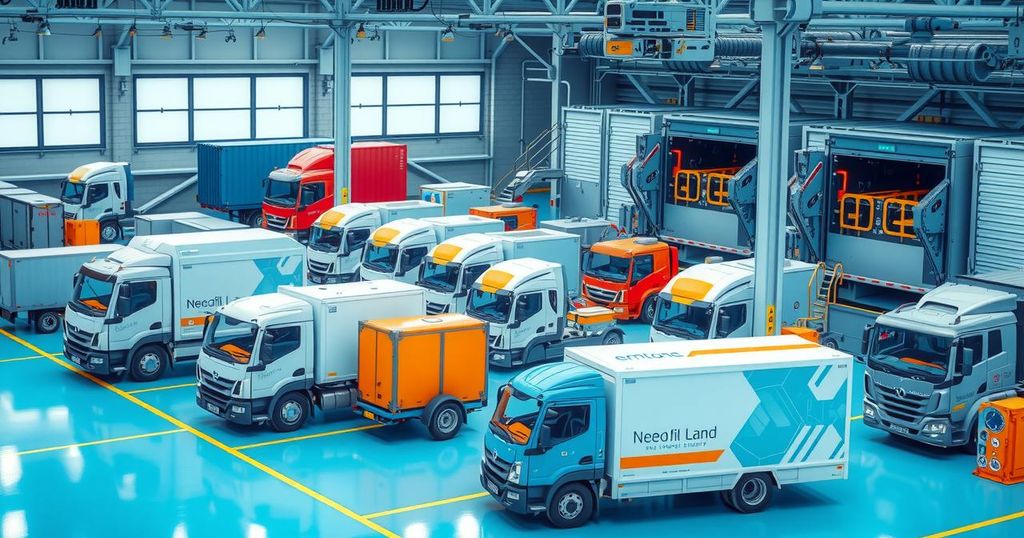Leta Secures Seed Funding to Revolutionize Logistics in Africa with AI Technology

Leta, a Kenyan logistics startup, has raised $5 million in seed funding to enhance its AI-powered platform that optimizes delivery logistics. The company aims to reduce costs and improve efficiencies for businesses across Africa. Backed by investors such as Google and Speedinvest, Leta is scaling its operations in key markets, emphasizing sustainability and financial services in its growth strategy.
African businesses face exorbitant logistics costs that can reach four times the global average, according to the African Development Bank (AfDB). Logistics expenses can account for up to 75% of product costs, adversely affecting prices for essential goods such as food and medical supplies. Many organizations still utilize outdated manual logistics processes, resulting in significant delivery delays.
Leta, a Nairobi-based logistics software-as-a-service company, aims to address these challenges. The firm employs an AI-powered platform to enhance delivery routes, monitor shipments in real-time, facilitate payments, and furnish businesses with valuable shipping insights. Recently, Leta secured $5 million in seed funding to expand its solution, which is designed to aid companies in transporting goods more efficiently and economically across Africa.
European venture capital firm Speedinvest led the funding round, with additional investment from Google’s Africa Investment Fund and the climate tech fund Equator. This financial support follows a prior pre-seed round in November 2022, where Leta raised $3 million from local investors to strengthen operations in key markets, including Kenya, Nigeria, Uganda, Zambia, and Zimbabwe.
Leta’s technology for load and route optimization enables clients to reduce costs and enhance delivery efficiency by minimizing the number of vehicles required for distribution. According to Founder and CEO Nick Joshi, the platform seamlessly integrates with businesses’ ERP, POS, and OMS systems to gather live order data, including SKUs, product types, prices, and customer information.
The platform optimally assigns the most suitable vehicle for each order and determines the loading methodology—first-in, first-out (FIFO) or last-in, first-out (LIFO)—thereby eliminating reliance on manual dispatching. Furthermore, it automates manifest creation and dispatch planning while optimizing vehicle utilization based on regional demand and truck capacity. Joshi emphasizes the AI-driven technology that efficiently updates delivery routes in real-time by flagging problematic areas.
The real-time mapping feature has attracted the attention of investors such as Google, as it enhances the accuracy of geographical data compared to existing services. Joshi underlines that Google Maps has not been updated in some suburbs of Nairobi since 2022, while Leta’s solution continuously updates its mapping data based on live delivery feedback.
Leta’s operational framework also positions financial services as an opportunity for future growth. The startup is exploring new products such as fuel cards for delivery partners, financing options for assets, and supply chain financing for fast-moving consumer goods (FMCG) merchants. Speedinvest’s Deepali Nangia highlights the firm’s support for Leta due to its dual leverage of logistics and fintech to unlock new market strategies.
The startup also contributes to sustainability by enabling businesses to downsize their fleets without diminishing delivery capabilities, thereby reducing fuel consumption and emissions. Joshi notes that one company managing 70 trucks has saved approximately $30,000 monthly through Leta’s platform. They aim to track carbon emissions as a vital future objective as well.
Currently, Leta services over 35 major clients, including global brands like KFC and Diageo, optimizing more than 10,000 daily trips across its five target markets. The company has experienced remarkable growth since 2022, with deliveries expanding from 500,000 to 4.5 million and revenue increasing fivefold.
Looking ahead, Leta aims to double its revenue in the near term as it strategically expands its reach in Africa and the Middle East. Unlike its predecessors such as Sendy and Lori, which adopted asset-heavy models, Leta chooses a software-centric approach, partnering with existing fleet owners to improve efficiency. Joshi believes that the prior generation of logistics startups have paved the way, allowing Leta to capitalize on market needs and expectations effectively.
In summary, Leta represents a transformative force in the African logistics sector through its AI-driven platform that enhances operational efficiency and reduces costs for businesses. Backed by significant investments from reputable firms, the startup has a clear strategy for growth in Africa and the Middle East. By solely focusing on software rather than asset ownership, Leta is well-positioned to address customer demands while contributing to sustainability within the industry.
Original Source: techcrunch.com




